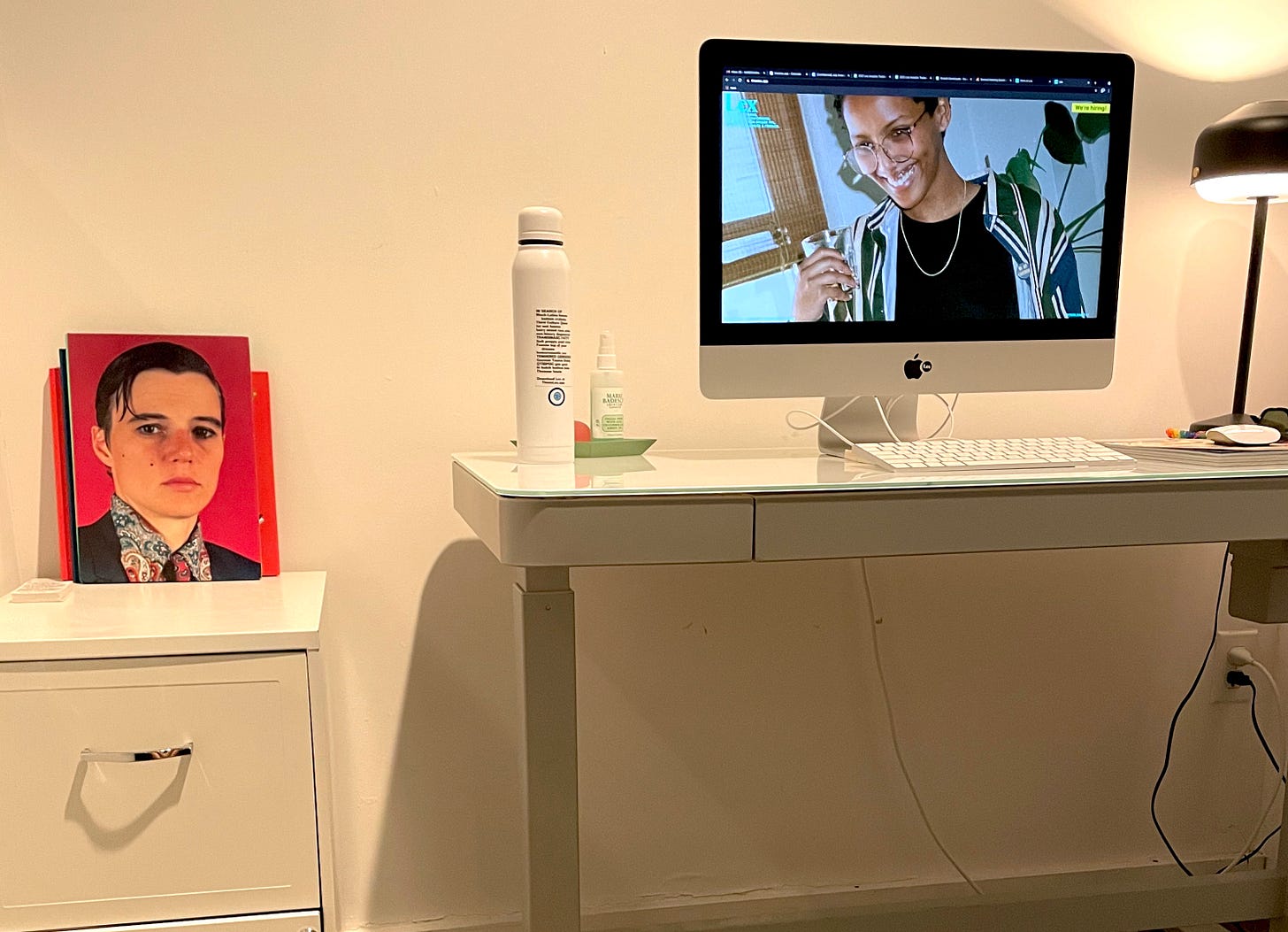Startup Stress Felt Like 4 Dentist Visits a Day: Facing My Patterns of Exhaustion and Avoidance
awkward zoom-calls, pitching anxiety, and hiding under the duvet
A Daily Grind of Doubt
Pitching my startup felt like going to the dentist four times a day—every day. The queasy anticipation, the awkward discomfort, and the looming potential for pain. But unlike the dentist, these meetings often left me questioning my worth. I wasn’t just bracing for temporary pain; I was walking away feeling fundamentally wrong—ill-equipped, out of my depth, and hyperaware of everything I wasn’t.
From Creative Spaces to Venture Capital Funds
For an art school weirdo like me, the experience was excruciating. In creative spaces, I thrived. Talking in soft, abstract, and even bizarre cadences was where connections were made and ideas came to life. But in the business world, in front of VC firms and Harvard-educated investors, my way of speaking and thinking felt alien. I wasn’t winning any debates. I didn’t sound polished. My unorthodox background and lack of formal training in business constantly loomed over me, filling me with anxiety and self-doubt.
Meeting Andy Dunn: An Awkward Bond
I vividly remember moments when I wanted to slam my laptop shut mid-pitch to escape the exchange. My first time meeting Andy Dunn over Zoom in 2020 was one of those moments. I think we stared at each other in silence for about 30 seconds—an eternity in a pitch meeting. Oddly, that shared moment of awkwardness bonded us—or at least, it endeared Andy to me. It let me claw through the discomfort and relax, even just slightly. Somehow, I knew he was as fucked up as me. Over time, he became an angel investor in Lex, taking after-hours calls with me to help navigate the roadblocks I faced. I never talked to him about that first meeting, but later, he wrote a book titled “Burn Rate: Launching a Startup and Losing My Mind” (relatable) about his experience as an undiagnosed bipolar entrepreneur while building Bonobos. That vulnerability and humanity made him one of the rare people I could connect with in a world that often felt demanding and serious.
The Disconnect
It’s hard to find people like that in VC, tech, or business—sensitive, emotional, maybe a bit off in another reality. I know they exist, but they’re often highly trained, masked, or just hidden. Talking to them wasn’t like chatting at a gallery opening in Chelsea, where eccentricity and nuance were celebrated. This was a different realm entirely.
The Physical Toll of Stress
After check-in calls with my lead investor, I would often need to sleep the rest of the day. A single 45-minute call could lay me out. The stress was so overwhelming—metrics, numbers, growth goals. Numbers numbed me. They didn’t inspire me; they drained me. And after every call, I was left not just exhausted but feeling like complete garbage about myself. Not worthy. Not enough.
Recognizing My Stress Responses
In hindsight, my response to stress wasn’t just about sleeping—it was also about hiding. I feel like I didn’t clearly recognize this pattern until it happened this week. After being surrounded by calm for six days, where I was focused, energized, and in bliss, the contrast was stark.
During that calm, I even commented to my partner, Marina, “I have so much energy now. I don’t need naps.” She was actually concerned there might be a gas leak or mold in our apartment because I had been sleeping so much over the past four years. I attributed it to detaching my eyes from the TikTok algorithm, mixed with the pleasant lack of stress due to not running a company.
But I was jarred back into napping when I learned of an upsetting event that happened to my parents this week. Immediately after the call with my mom, I crashed into bed, hiding and napping. It then clicked that this is my coping mechanism. It took me two days to get out of it. Never mind that I decided to lower my dose of meds.
Breaking the Cycle: Rest Beyond Avoidance
The screen became another escape, one that offered temporary relief but fed into the same cycle of exhaustion. Scrolling through my phone late at night felt like a way to avoid the pressure, but it kept me awake, overstimulated, and stuck in a loop. It wasn’t rest; it was avoidance. And avoidance didn’t help. It only deepened the feeling of unrest.
Now, I’m learning to recognize these patterns and interrupt the cycle. Rest, I’m realizing, is not just about sleep but about creating space to process and rebuild. It’s about stepping out of hiding and choosing moments of intentional calm over numbing distractions.
Finding rest is a work in progress. But naming the patterns has been the first step toward reclaiming energy, focus, and a sense of balance.
QUESTION: What patterns do you notice in how you respond to stress? Do you hide, distract yourself, or have another way of coping? Tell me so we can bond in the comments!







Masking! Swear I was about 97% mask in the end, just fully cosplaying corporate which makes me sad realizing I can’t have been the only one. I’m a sugar addict in stress mode though, which is also not great for trips to the dentist etc.